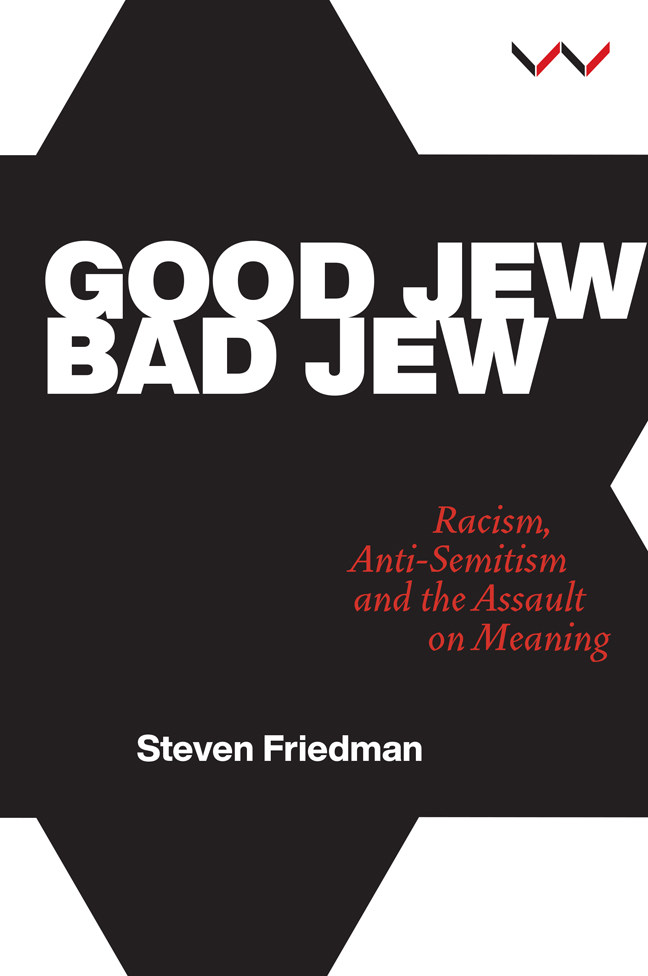Book contents
- Frontmatter
- Contents
- Acknowledgements
- Introduction: The Tenacity of Race Bias
- Chapter 1 Turning Anti-Semitism on its Head
- Chapter 2 Making ‘Good Jews’ White and European
- Chapter 3 What Anti-Semitism Really Is
- Chapter 4 The Israeli State as a ‘Cure’ for Anti-Racism
- Chapter 5 Zionism as an Escape from Jewishness
- Chapter 6 Mimicking the Oppressor
- Chapter 7 Two Religions and the Nightmare the West Created
- Chapter 8 Colonising Anti-Racism
- Conclusion: The ‘New Anti-Semitism’ and Politics Today
- Notes
- Bibliography
- Index
Chapter 7 - Two Religions and the Nightmare the West Created
Published online by Cambridge University Press: 02 March 2024
- Frontmatter
- Contents
- Acknowledgements
- Introduction: The Tenacity of Race Bias
- Chapter 1 Turning Anti-Semitism on its Head
- Chapter 2 Making ‘Good Jews’ White and European
- Chapter 3 What Anti-Semitism Really Is
- Chapter 4 The Israeli State as a ‘Cure’ for Anti-Racism
- Chapter 5 Zionism as an Escape from Jewishness
- Chapter 6 Mimicking the Oppressor
- Chapter 7 Two Religions and the Nightmare the West Created
- Chapter 8 Colonising Anti-Racism
- Conclusion: The ‘New Anti-Semitism’ and Politics Today
- Notes
- Bibliography
- Index
Summary
As the introduction to this book noted, its title is inspired by a work that seems to cover very different ground but, on close inspection, throws important light on the discussion of Jewish identity in these pages: Mahmood Mamdani’s Good Muslim, Bad Muslim.
Mamdani’s book was written in the shadow of the events of 11 September 2001, or, more accurately, following the Western reaction to them, the consequences of which are still very much with us. The 2001 attack on the World Trade Centre hardened already strong hostility to Muslims in the West – strengthening the stereotype, mentioned in chapter 2, that they are inherently violent and fanatical. These prejudices seemed, to some degree, to be leavened by the view, publicly expressed by authority figures in the United States and Western Europe, that only some Muslims were threats to peace and security. They distinguished between ‘good Muslims’ who were law-abiding domestic and international citizens and ‘bad Muslims’ who were violent religious fundamentalists hostile to the West. Great energy and effort have been spent in Western countries on ‘deradicalisation’, ‘preventing violent extremism (PVE)’ and ‘countering violent extremism (CVE)’ programmes that have sought to prevent ‘good’ Muslims from becoming ‘bad’ ones (and, sometimes, converting ‘bad’ ones into ‘good’ ones).
This distinction, Mamdani’s book seeks to show, ignores a key reality – that while the ‘bad Muslims’ were not inventions of Western powers, particularly the United States, they were, nevertheless, their creations in that they would never have acquired their impact without active US assistance. The United States enabled them when it was fighting the Cold War against Soviet communism and it saw ‘fundamentalist’ Muslims as allies against the Soviets – particularly in Afghanistan where militant Islamist groups played a central role in defeating the Soviet occupation. It was the US’s own proteges who were later to turn on it and to attack its people and its installations. Given this, the existence of ‘bad Muslims’ says less about the Islamic faith and the people who adhere to it than it does about the way that power is wielded in the world and the new forms of colonial strategy and ideology.
- Type
- Chapter
- Information
- Good Jew, Bad JewRacism, Anti-Semitism and the Assault on Meaning, pp. 114 - 130Publisher: Wits University PressPrint publication year: 2023



